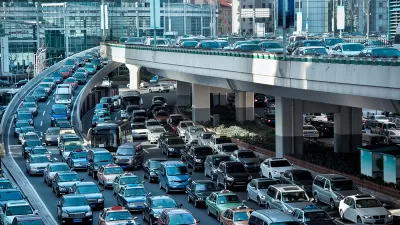Across the country, a median of 12.5 percent of workers continue to perform their jobs remotely.

A new list from SmartAsset reveals the U.S. cities with the highest percentage of remote workers. As Jaclyn DeJohn explains in The Herald Sun, a median of 12.5 percent of U.S. workers work from home.
The ranking shows that Frisco, Texas, part of the Dallas-Fort Worth metroplex, has the nation’s highest proportion of remote workers at 34.16 percent. In 22 other cities, over 25 percent of the workforce works from home. These include Seattle, Austin, Boulder, Portland (Oregon), and Atlanta. On the other end of the spectrum, just 1.58 percent of workers are remote in Odessa, Texas.
The five cities with the highest percentage of remote workers:
- Frisco Texas: 34.16 percent
- Berkeley, California: 31.29 percent
- Charlotte, North Carolina: 29.71 percent
- Carytown, North Carolina: 29.4 percent
- Carlsbad, California: 29.06 percent
This data can have major implications for cities. DeJohn notes that “the portion of workers operating remotely may impact the dynamics of a city. Where people spend most of their days may impact the food, transportation, and amenities sought by the population.”
FULL STORY: Cities with the most people working from home

Alabama: Trump Terminates Settlements for Black Communities Harmed By Raw Sewage
Trump deemed the landmark civil rights agreement “illegal DEI and environmental justice policy.”

Planetizen Federal Action Tracker
A weekly monitor of how Trump’s orders and actions are impacting planners and planning in America.

The 120 Year Old Tiny Home Villages That Sheltered San Francisco’s Earthquake Refugees
More than a century ago, San Francisco mobilized to house thousands of residents displaced by the 1906 earthquake. Could their strategy offer a model for the present?

In Both Crashes and Crime, Public Transportation is Far Safer than Driving
Contrary to popular assumptions, public transportation has far lower crash and crime rates than automobile travel. For safer communities, improve and encourage transit travel.

Report: Zoning Reforms Should Complement Nashville’s Ambitious Transit Plan
Without reform, restrictive zoning codes will limit the impact of the city’s planned transit expansion and could exclude some of the residents who depend on transit the most.

Judge Orders Release of Frozen IRA, IIJA Funding
The decision is a victory for environmental groups who charged that freezing funds for critical infrastructure and disaster response programs caused “real and irreparable harm” to communities.
Urban Design for Planners 1: Software Tools
This six-course series explores essential urban design concepts using open source software and equips planners with the tools they need to participate fully in the urban design process.
Planning for Universal Design
Learn the tools for implementing Universal Design in planning regulations.
Clanton & Associates, Inc.
Jessamine County Fiscal Court
Institute for Housing and Urban Development Studies (IHS)
City of Grandview
Harvard GSD Executive Education
Toledo-Lucas County Plan Commissions
Salt Lake City
NYU Wagner Graduate School of Public Service




























